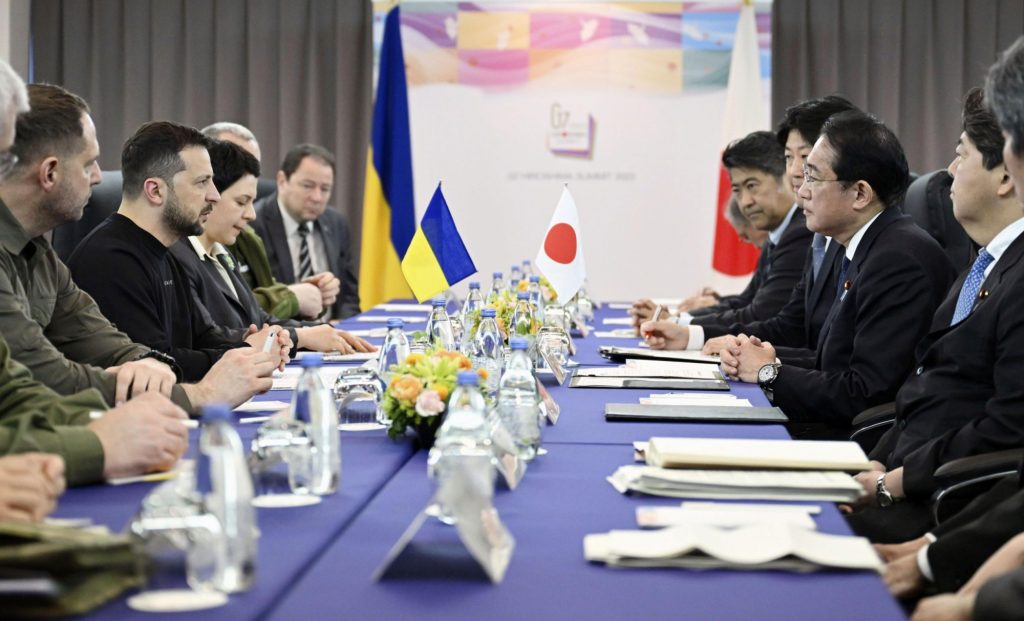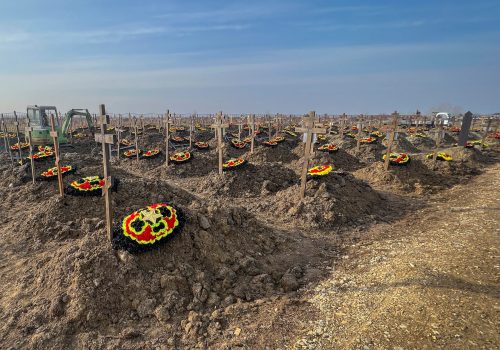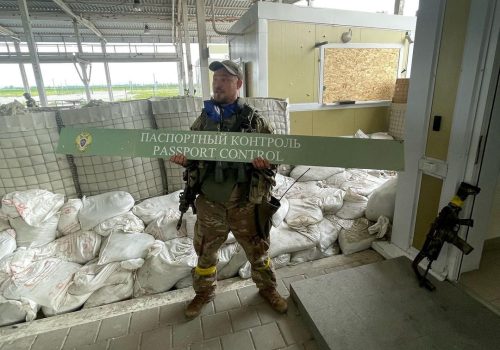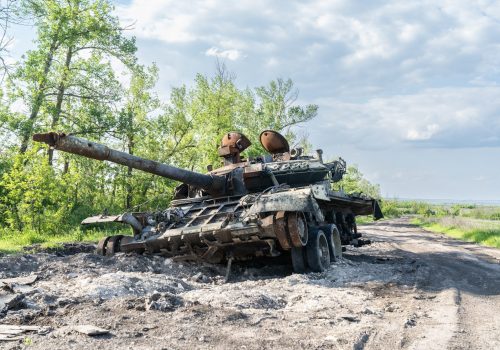Since the onset of Russia’s full-scale invasion fifteen months ago, Ukraine has been forced to fight for national survival on the battlefield while at the same time creating and maintaining a broad international coalition of partners prepared to arm the country. Ukraine’s ability to address these unique challenges offers a range of potentially important lessons for the wider international community.
One key lesson learned by Ukrainian officials since February 2022 is the importance of seizing the moment. Time and again, Ukraine’s political and military leaders have demonstrated an ability to act quickly and decisively. One obvious example is President Zelenskyy’s fateful decision during the first days of the invasion to stay in Kyiv rather than accepting offers to evacuate. His famous quote, “the battle is here, I need ammunition not a ride,” captured the imagination of the watching world and was instrumental in helping persuade Western leaders to stand with Ukraine.
Another important lesson has been the need to adopt an interest-oriented approach to building international alliances by focusing on the underlying interests of each party. Ukraine has been highly successful at getting across the message that Russia’s invasion is a clash of civilizations with global implications. While some have sought to portray the war as a mere territorial dispute, Ukraine has been consistent in explaining what Russian success would mean for the future of international security. This has played a crucial role in consolidating Western support for the Ukrainian war effort. By identifying and addressing the core security interests of its partners, Ukraine has been able to establish clear objectives and build trust.
Ukraine’s experience of international negotiations since the eve of the Russian invasion also demonstrates the benefits of adopting a straightforward approach rooted in shared values and common goals. A good example of this principle in practice is the Ramstein Format, which unites 50 countries based on a readiness to act against Russian aggression. Thanks to Ramstein, Ukraine has been able to secure critical military aid in an efficient manner through close coordination with a large number of partners. While individual participating countries all have their own particular agendas and national interests, Ukraine has managed to keep the focus fixed firmly on the overriding need to defeat Russia.
Stay updated
As the world watches the Russian invasion of Ukraine unfold, UkraineAlert delivers the best Atlantic Council expert insight and analysis on Ukraine twice a week directly to your inbox.
One of the main factors behind Ukraine’s successful diplomacy has been perseverance. In terms of acquiring new weapons systems and other forms of military aid, Ukrainian Defense Minister Oleksii Reznikov has adopted a strategy of demonstrating a willingness to negotiate while proceeding in parallel with the necessary technical preparations. As a result, Ukraine has typically been ready to act once political decisions have been reacted and the right moment has arrived. Time and again, Reznikov and his colleagues in the Ukrainian government have been told by the country’s partners that certain new categories of military aid simply cannot be supplied. However, with sufficient patience and perseverance, the impossible has repeatedly become possible.
Similarly, it has often been best to adopt an incremental approach to negotiations rather than trying to achieve comprehensive breakthroughs immediately. Many of the steps Ukraine has been calling on its partners to make represent major foreign policy watersheds that cannot be taken lightly or rushed. However, it has often proved possible to move from one step to the next and build momentum toward ever more significant decisions.
This incremental approach can be seen in the expansion of military aid to Ukraine. In the weeks prior to Russia’s February 2022 invasion, many countries questioned the wisdom of supplying the Ukrainian military with hand-held anti-tank weapons. Over the past fifteen months, the range of weapons being delivered to Ukraine has evolved dramatically to include artillery, air defense, tanks, and cruise missiles. Perhaps the best single example of the incremental approach was the creation of a “tank coalition” to provide Ukraine with Leopard 2 main battle tanks. It took months of negotiations and many small steps such as agreements on training and maintenance before Germany finally gave the green light to supply Ukraine with Leopards.
Eurasia Center events

The clarity of Ukraine’s position on peace talks has helped the country to consolidate international support. While some international politicians and commentators continue to argue that negotiations between Ukraine and Russia are inevitable, Ukraine has insisted on the complete liberation of all Ukrainian territory and provided compelling arguments to justify this stance. The consistency of Ukraine’s position has helped to gradually win over the country’s partners. While many European leaders spoke earlier of the need to avoid isolating or humiliating Russia, there is now a growing consensus throughout the West that Russia must be defeated.
With the war still far from over, Ukraine seems set to remain on a steep diplomatic learning curve. One increasingly important focus is long-term defense planning. Ukrainian security needs to become a central pillar of the broader security strategies adopted by NATO and the EU. At present, NATO’s strategic concept until 2030 identifies Russia as “the most significant and immediate threat to the security of allies, as well as peace and stability in the Euro-Atlantic region.” Ukraine’s unique experience of confronting Russian aggression in all its forms can make a major contribution to countering this threat.
Rather than seeking to push Ukraine into some form of compromise with Russia, the international emphasis should now be firmly on pressuring Russia to end its invasion. This could include providing expanded military aid to Ukraine, imposing additional sanctions on Russia, and pursuing international war crimes litigation. Ukrainian officials will be looking to advance all three of these objectives, and will be utilizing diplomatic skills honed in the exceptional circumstances created by Russia’s full-scale invasion.
Yuna Potomkina is an advisor to the Ukrainian Minister of Defense.
Further reading
The views expressed in UkraineAlert are solely those of the authors and do not necessarily reflect the views of the Atlantic Council, its staff, or its supporters.

The Eurasia Center’s mission is to enhance transatlantic cooperation in promoting stability, democratic values and prosperity in Eurasia, from Eastern Europe and Turkey in the West to the Caucasus, Russia and Central Asia in the East.
Follow us on social media
and support our work
Image: Japanese Prime Minister Fumio Kishida and Ukrainian President Volodymyr Zelenskyy hold talks after the conclusion of a three-day Group of Seven summit in Hiroshima. May 21, 2023. (Pool photo) (Kyodo) ==Kyodo NO USE JAPAN




